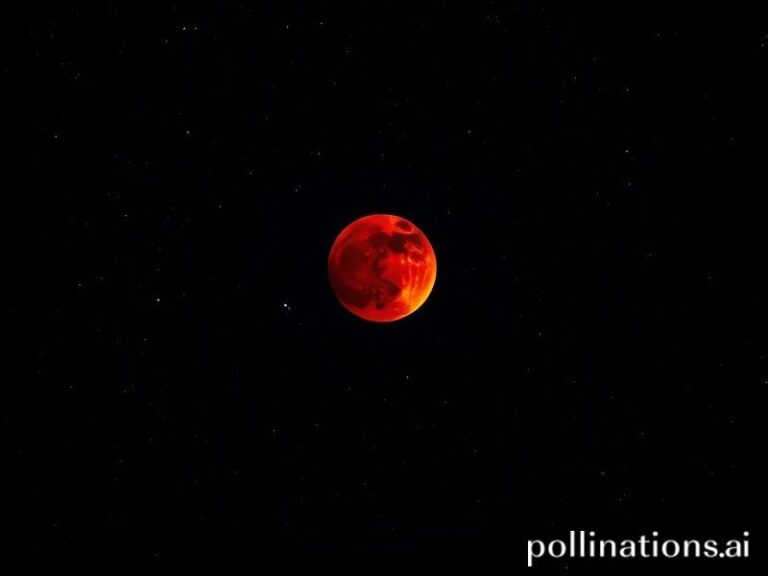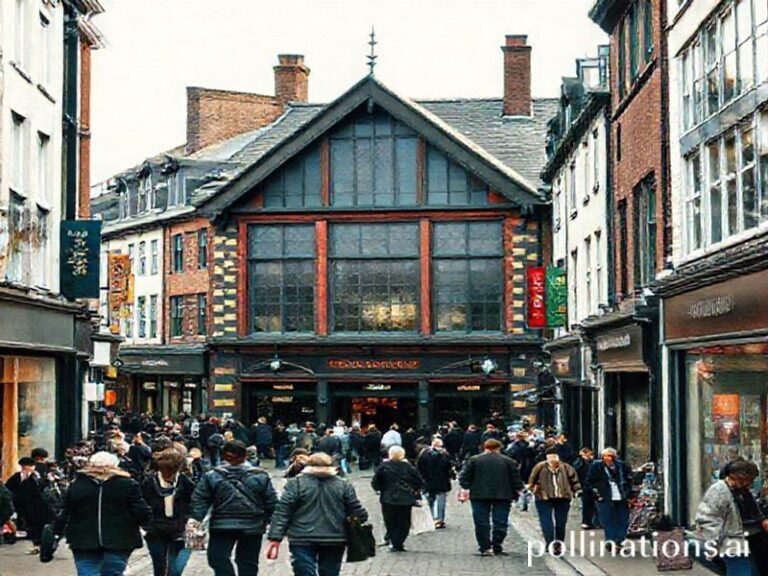rhode
Rhode: The Lipstick Empire the World Never Knew It Needed
By Dave’s Foreign Correspondent, still jet-lagged in Terminal 3
Somewhere between the collapse of the Turkish lira and the quiet implosion of another crypto exchange, the planet has paused to obsess over Rhode—an American cosmetics line whose name sounds like a mispronounced Greek island but apparently refers to Rhode Island, itself a place most Atlases treat as cartographic urban legend. Launched by Hailey Bieber (née Baldwin, formerly “Mrs. Justin 2.0”), Rhode has become the fastest way to signal that you, too, would like to look dewy while the global south quietly dehydrates.
To the uninitiated, Rhode is a minimalist collection of tinted lip balms, peptide glazes, and something called “Pocket Blush,” which sounds like a minor sex offense in Singapore but is in fact a $24 tube of pigment you squeeze directly onto your face. The brand’s genius lies in selling scarcity to people who already have everything: drops so limited that resellers on WeChat are moving “glazing milks” for triple the sticker price, right next to fentanyl ads. The UN may struggle to sanction rogue states, but it still can’t stop a Beijing millennial from panic-buying “Salted Caramel Lip Case Refill” like it’s enriched uranium.
Across Europe, where citizens are busy insulating their homes against Russian pipeline nostalgia, Rhode’s arrival has been heralded by influencers who use the phrase “quiet luxury” without apparent irony. In Paris, the brand’s pop-up drew queues longer than the one for the Mona Lisa—proof that when civilization teeters, people still find time to cosplay as glazed doughnuts. Meanwhile, the French pharmacists’ union has lodged a formal complaint, alleging that Rhode’s peptide complex contains nothing more exotic than snail mucin, which, to be fair, is exactly what half of TikTok wants smeared across its cheekbones.
In the Global South, the Rhode phenomenon is observed with the same anthropological curiosity once reserved for cargo cults. Lagos dermatologists report patients requesting “that Bieber glow” while the national grid flickers like a haunted disco. In Mumbai, knock-off “Rhodé” (note the accent) stalls have appeared next to temples, selling tubes that allegedly contain actual temple ghee. Sales are brisk; hospital dermatology wards less so.
China’s response has been characteristically efficient. Within 48 hours of Rhode’s first restock, Xiaohongshu was awash in DIY tutorials: mix Vaseline, beetroot, and the tears of a disappointed mother for 1/100th the price. State media weighed in with a stern editorial warning that “blind worship of foreign brands” undermines socialist values, a sentiment echoed by the same cadres whose daughters are quietly DM’ing Californian reshippers.
The broader significance? Rhode is less about skincare than about soft power in a tube. In a world where American cultural exports now range from Marvel fatigue to export-grade conspiracy theories, a peach-colored balm becomes a stealth ambassador. It whispers: “We still know how to package desire.” Never mind that the actual product is made in Korea, shipped via the Suez Canal (when it isn’t blocked by another wayward container ship), and packaged in cardboard sourced from Canadian forests that are currently on fire. Globalization has never been so moisturized.
And yet, there’s something almost reassuring in watching humanity repeat the same dance: declare a shortage, create a frenzy, monetize the panic. Swap tulip bulbs for lip glaze, South Sea shares for peptide serum—same song, shinier chorus. While COP delegates argue over half-degree temperature deltas, Rhode sells the promise of a complexion so dewy it might survive the flood.
In short, Rhode is the perfect 2024 artifact: a trivial luxury elevated to geopolitical metaphor, a reminder that even as the world burns, we’ll still queue for the right shade of nihilism. Just remember to reapply every two hours or after swimming through rising sea levels.







